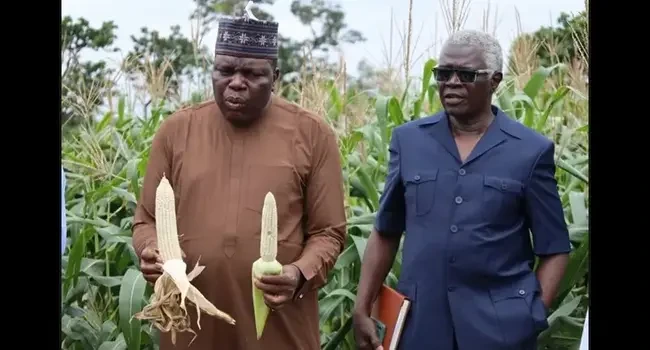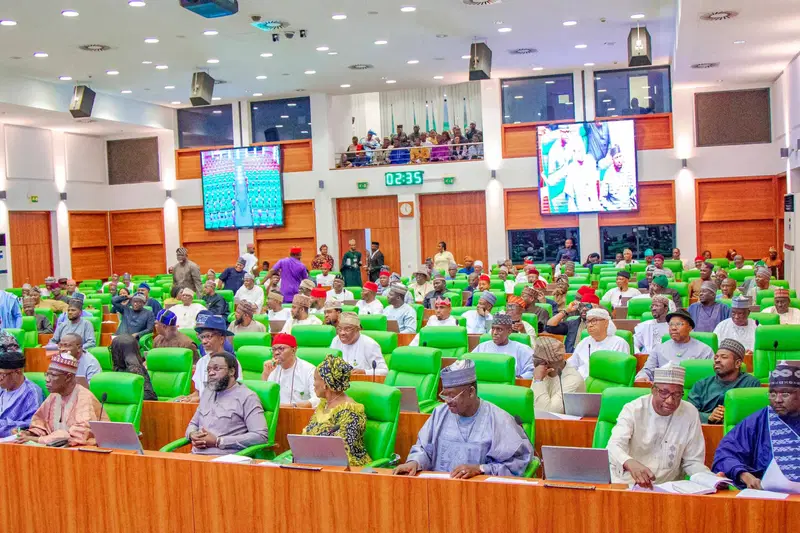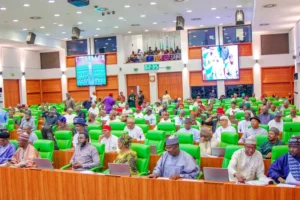The recently developed transgenic maize, commonly referred to as TELA maize, has demonstrated remarkable resilience in field conditions when compared to conventional varieties. A visit to the harvest site has revealed that TELA maize not only withstands environmental stresses but also exhibits improved yield potential. This advancement could significantly impact agricultural practices and food security, providing farmers with a more robust option in their crop rotation strategies.
Recall that the Federal Government recently launched this genetically modified maize variety after it was approved for commercialization by the National Varietal Release Committee.During the first harvest of this maize variety on Monday at the Headquarters of the National Biotechnology Research and Development Agency (NBRDA) in Abuja, the Director General of the Agency, Professor Abdullahi Mustapha, stated that TELA Maize hybrid varieties were developed to tackle some of the pressing challenges facing farmers, such as pests and diseases that can drastically reduce crop yields.He highlighted that the development of this maize variety was a collaborative effort involving scientists from the Institute of Agricultural Research (IAR) in Zaria, alongside key stakeholders from institutions like NBRDA, the National Biosafety Management Agency (NBMA), the National Agricultural Seed Council (NASC), and the African Agriculture Technology Foundation (AATF) Research Team.
Today provides an exciting opportunity for us to showcase our demonstration farms of genetically modified versions of commonly consumed crops developed by our own scientists that have received rave reviews from the global scientific community and the agricultural sector.“Today you shall be visiting our TELA Maize farms. As you may have been aware, TELA Maize hybrid varieties were developed to address some of the pressing challenges facing our farmers, including pests and diseases that can significantly reduce crop yields.“We believe that TELA Maize has the potential to transform the agricultural landscape in Nigeria and beyond. We’re proud to be at the forefront of this innovation and look forward to sharing more of our findings with you,” Professor Mustapha noted.

In her remarks, the Director of Agriculture Biotechnology at NBRDA, Dr. Rose Gidado, reiterated the safety of TELA maize as she debunked claims that the maize is harmful to humans and the environment.“TELA Maize is not harmful to human health and no chemicals have been injected into it,” she explained. “We’ve been planting GMO crops since 2016, and there’s no harm. You can see ants and butterflies and we are breathing clean air.”She, however, enjoined media practitioners to educate farmers on the benefits of farming TELA Maize, which she said could significantly help them grow their businesses in the face of climate change. She stressed the importance of farmers adopting this climate-smart technology to improve food security in Nigeria.On the other hand, the Stewardship Manager at AATF, Dr. Francis Onyekachi, reiterated that GMOs, including GM TELA Maize, are safe, natural, and sustainable.Onyekachi explained that “Genetically Modified TELA Maize is developed to help reduce the use of chemicals in agriculture. It has the natural ability to fight insects, and you don’t need chemical insecticides.”




















